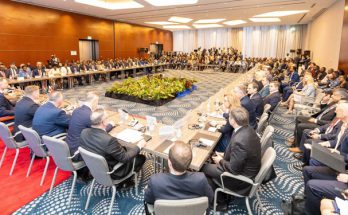 The first low-price, single-pill antiretroviral treatment is probable of being made accessible in 90 LMIC (low and middle wage) nations because of a leap forward in costing agreement for HIV drugs. The procedure containing DTG (dolutegravir) could turn out to be widely accessible in LMIC nations for about a tenth of the present cost – around US $75 per individual every year
The first low-price, single-pill antiretroviral treatment is probable of being made accessible in 90 LMIC (low and middle wage) nations because of a leap forward in costing agreement for HIV drugs. The procedure containing DTG (dolutegravir) could turn out to be widely accessible in LMIC nations for about a tenth of the present cost – around US $75 per individual every year
The agreement came to be after the realization of the shared undertakings between national governments, UN associations, NGOs, and pharmaceutical manufacturers. As more nations will have the ability to begin treatment on more people without extending the financial budget, treatment degree is expected to rise further. With the help of this deal, it is possible to sublicense DTG in 92 countries at a value rooftop that is relatable to low and center-wage countries.
Kenya started the usage of generic DTG this year, while South Africa is set to make the treatment even more prevalent in April 2018, with saved funds anticipated to be worth US $900 million over the coming six years.
UNAIDS Executive Director Michel Sidibé said, “This agreement will improve the quality of life for millions of people living with HIV. To achieve the 90-90-90 treatment targets, newer, affordable and effective treatment options must be made available—from Baltimore to Bamako—without any delay.”
DTG offers quicker viral load suppression, less side effects and better barrier against drug resilience, yet until now has been excessively costly for LMICs. It is for the most used in high-income countries and is recommended by the World Health Organization as an alternative first-line HIV regimen.
While being a medication that offers less reactions, enhanced protection and faster viral load suppression, DTG has been a costly drug up to this point. It is prescribed by WHO (World Health Organization) as another first-line HIV regimen and is also broadly utilized by developed high-income nations.
After the deceleration of the agreement, issues were raised about the anticipation of a 17% re-compensation cut of the Presidential Emergency Plan for AIDS Relief (PEPFAR), which signifies US $3.8 billion from the US $4.6 billion could undermine the rollout of the generic drug in a few countries.
Dr. Larkin Callaghan, Director of Strategic Communications and Partnerships at the Aids Research Institute at the University of California, San Francisco while talking with The Independent, said the DTG value assention “should underscore the need for PEPFAR to remain fully funded.”
Moreover, the Medicines Control Council expressed that only two pharmaceutical businesses have connected to register the medication for the time being. This demonstrates little competition when companies tender for drug supply next April, as there is a lack of time for competitors to have their drugs validated by then.
Lotti Rutter, Treatment Action Campaign agent, said that more makers should have entered the market keeping in mind the end goal to accomplish the base conceivable cost for the new regimen




